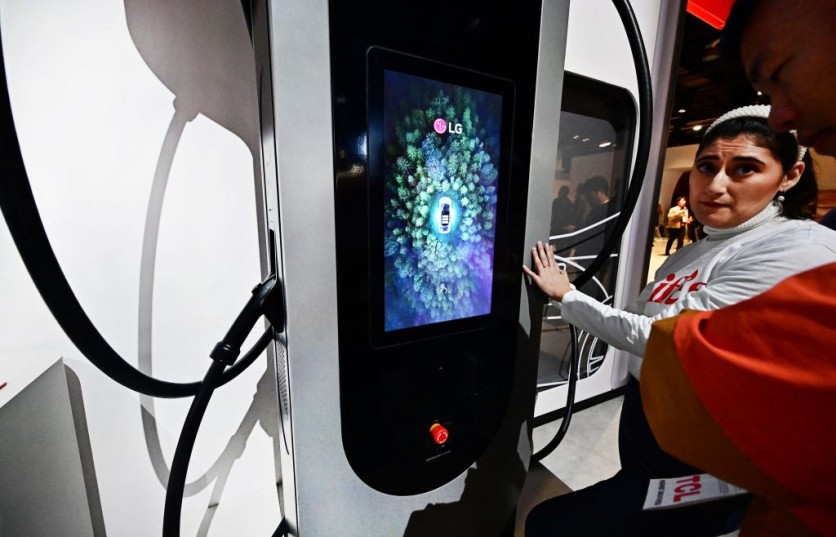LG Electronics has marked a substantial entry into the US electric vehicle (EV) charging market by unveiling its first EV charger facility outside South Korea in Fort Worth, Texas.
The newly inaugurated EV charging station factory, spanning 59,202 square feet, is equipped to produce over 10,000 chargers annually, with the production of 11-kilowatt EV chargers already underway, according to TechCrunch. Plans call for the assembly of 350-kilowatt chargers later in the year, after 175-kilowatt chargers in the first half of the year.

Seizing Lucrative Opportunity
LG is looking to capitalize on the US EV market and EV charger demand. The US has over 165,000 public EV charging locations, and President Biden wants 500,000 by 2030.
However, the growth of charging networks faces challenges. The lower adoption rates of electric vehicles are partially attributed to buyer concerns about insufficient charging points, creating a classic chicken-and-egg scenario. Despite the existing charging infrastructure, many points encounter functionality issues or incompatibility with specific vehicle systems.
The government's support for extensive charging initiatives has encouraged LG's endeavors. Jang Ik-hwan, LG Business Solution Company president, stated, "By establishing our EV charger production factory in Texas, we will be able to actively respond to the rapidly growing demand for EV infrastructure in the US."
Texas was chosen for strategic reasons, leveraging existing facilities, logistics, and transportation networks. LG has been working on EV charger development since 2018, and in 2022, it acquired HiEV Charger (formerly AppleMango), a South Korean manufacturer of EV battery chargers.
Biden Admin to Spend $623 Million to Boost EV Charging Infrastructure
The Biden administration just announced a $623 million financing program to speed EV charging infrastructure construction in the US. There are fears that the transition to zero-carbon transportation lags behind climate crisis mitigation targets. According to The Guardian, the funding, sourced from the bipartisan infrastructure law, will be distributed through grants for various programs across 22 states.
These programs include installing EV chargers in New Jersey apartment blocks, rapid chargers in Oregon, and hydrogen fuel chargers for freight trucks in Texas. The goal is to add 7,500 chargers across the country, which contributes to a wider strategy of building at least half a million electric vehicle charging points to embrace changes away from traditional fuel and diesel-based vehicles. Transportation Secretary Pete Buttigieg stressed the need to develop an efficient charging network to pave the way for this electric vehicle breakthrough.
Shailen Bhatt, the administrator of the Federal Highway Administration, emphasized that the charging infrastructure ensures convenient and reliable access for individuals ranging from local business owners to freight truck operators "to conveniently and reliably get where they need to go," per ABC News.

ⓒ 2025 TECHTIMES.com All rights reserved. Do not reproduce without permission.




